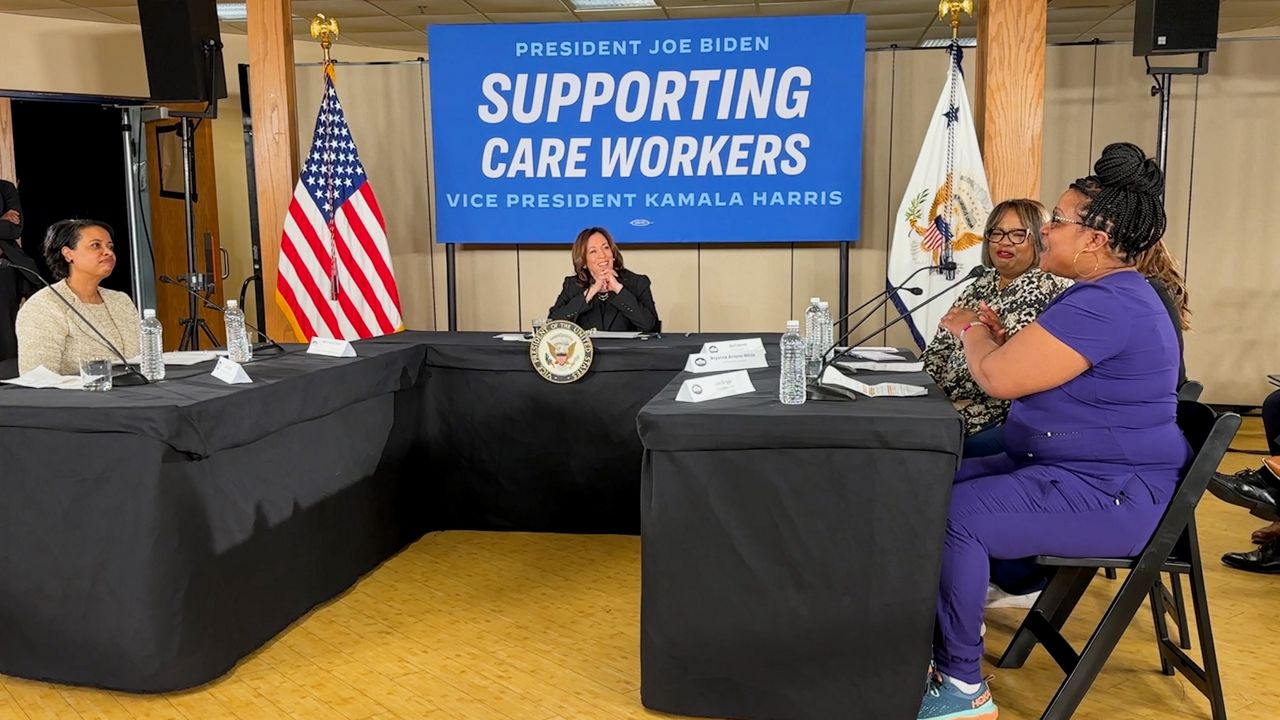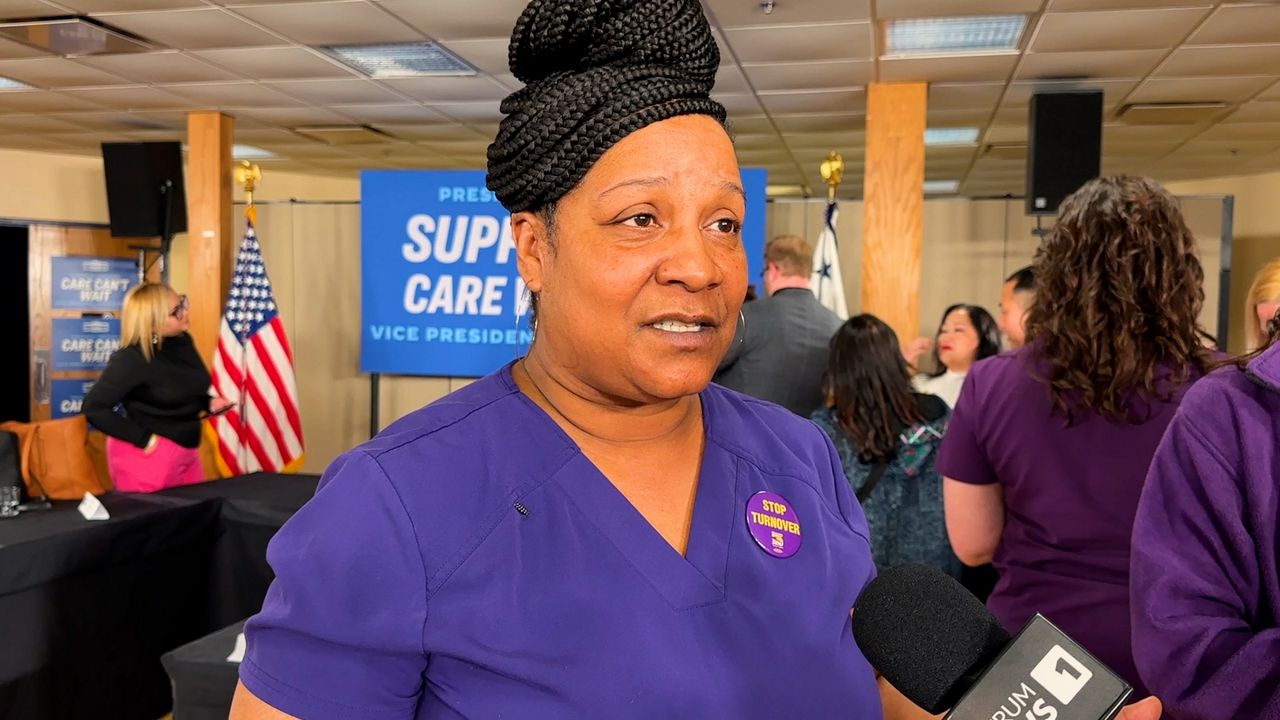LA CROSSE, Wis. — Improving access to affordable, quality care was the focus for nursing home workers who gathered at the Hmong Cultural and Community Center for a roundtable conversation with Vice President Kamala Harris on Monday.
As part of her third trip to Wisconsin this year, the vice president highlighted two new actions the White House believes could help.
Every year, Medicare and Medicaid pay billions of dollars to ensure nearly 1.2 million Americans in nursing homes are cared for. However, the Biden-Harris administration worries that isn’t happening because of understaffing.
“Today is about recognizing the gift that home healthcare workers and care workers give to us as a society,” Harris told the audience of local leaders and union members.
During her latest trip to the Badger State, the vice president highlighted two new rules aimed at supporting the care economy.

The first would establish minimum staffing requirements for federally funded nursing homes, while the second will increase pay for home and community-based service workers, according to the White House.
Under the minimum staffing rule finalized Monday, those facilities would need 3.48 hours per resident per day of total staffing. For example, a nursing home with 100 residents would need at least two or three RNs, as well as 10 or 11 nurse aides, on top of two additional nurse staff, whether RNs, LPNs, or aides, to meet minimum standards.
“It means that there may be no one available to help them out of bed,” Harris explained of the current shortages. “It means there may be no one available when they fall. It means they will receive less medical attention because the care workers in that facility are going from room to room.”
The latest action by the Biden-Harris administration comes after the president promised, during his 2022 State of the Union address, to increase access to high-quality care and crack down on nursing homes that put residents at risk.

Lisa Briggs, a Certified Nursing Assistant (CNA) from Milwaukee, who got to share her experience with Harris on Monday, said the policies could make a big difference.
“We don’t have to work so hard,” Briggs said. “We don’t have to give less time to our patients and residents, so they’ll feel better that we can spend more time with them, do companion with them, make beads with them, you know things like that.”
However, a recent report by the policy team at the Wisconsin Institute for Law & Liberty (WILL) disagrees.
According to the analysis, under the new rules, three in four facilities across the state would be forced to hire additional staff or shut down if they cannot meet the federal regulations. Instead, the report suggests improving staffing shortages by changing training standards.
"The proposed rule from the Biden Administration will exacerbate the workforce shortage in nursing homes, reducing options and making care more expensive for Wisconsin seniors," Miranda Spindt, a policy associate at WILL said. "The state already grapples with nursing shortages and rising long-term care expenses, and this proposal will compound these challenges.”
After the roundtable with nursing home workers, which was an official event, the vice president traveled across town to the La Crosse Center for a reproductive freedoms campaign rally.



